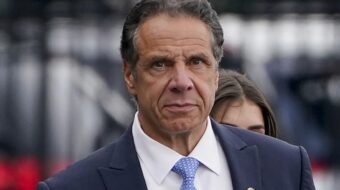There is a lot of truth to go around in this world. When you have a world of complexity, you also have, and need, many ways of looking at and understanding it.
The problem comes when people seize hold of a partial truth and inflate it by acting as if it was total truth. This happens a lot these days in economics.
Conservative economists, whose hold on truth is limited to the profits of certain kinds of corporations, almost always get it wrong, because their truth is limited to a startlingly small portion of the population.
’True’ for 0.001 percent, false for 99.999
For example, studies have shown that the tax benefits from George W. Bush’s tax cuts not only disproportionately benefit the top 1 percent of the population; even within that tiny demographic, the benefits skew towards the very top, the tiniest portion of a percentage, the top 1/10th of 1 percent. So, for those economists who champion these tax cuts, what little truth they have hold of is not true for the other 99 percent of the population, including some very wealthy capitalists.
But many liberal economists get it wrong too, when they buy into various aspects of the “free market” economy as if that represented total truth. When they restrict themselves to the “logic of the market,” they end up reinforcing the conservative program, sometimes even unintentionally.
You can see this in many commentaries on the current housing/mortgage problems.
Most conservative economists lament that the banks had such bad judgment that they lent money to the “undeserving poor,” by which they mean people who couldn’t really afford to buy such expensive houses. These economists imply that when the banks weren’t looking, those sneaky working-class people put over a fast one on the financial professionals.
The conservatives want to abandon poor and moderate-income people who bought houses they desperately needed. The prescriptions of these “experts” amount to letting all those folks lose their homes to foreclosure while the Federal Reserve guarantees the “health” of the financial markets.
Liberal economists get it more right by pointing out that the banks weren’t making irrational decisions — they were simply “bundling” mortgages and selling them for a quick profit. So these economists more correctly blame the banks rather than the homebuyers.
Many liberals say the banks are at fault and should eat the losses, the way a capitalist economy is supposed to work.
But in both of these analyses we see phrases like “the oversupply of housing is now in the millions.” They urge different policy variations to get the housing and mortgage markets to engage in “market corrections’ or “value corrections.” But they both see the problem as too many houses, or too many bad loans, or too much buying into the “housing bubble.”
Too many houses, or not enough affordable housing?
These economists do indeed have hold of one or another part of the truth. Banks were too eager to make quick profits by selling lots of mortgages. Homeowners and buyers did make decisions based on the assumption that, since housing prices had been increasing almost exponentially, that kind of increase would continue forever. Builders were eager to build ever-larger and more expensive housing that wound up driving buyers into unsustainable levels of debt.
But in all this finger-pointing, few point out the obvious truth: in a country that has millions of homeless people, millions of people need those millions of houses. The problem is not an oversupply of housing. The problem is a perceived undersupply of the excess profits desired by the builders, the banks, the stock market, the financial market and those who measure the economy only by Wall Street statistics.
As long as this Ponzi scheme had profits continuing to soar, most of these economists didn’t care about providing affordable housing for workers, poor people or families, nor did they care about the long-term sustainability of this house of cards. And they still don’t. Like Marie Antoinette, who said of the starving French masses demanding bread: “Let them eat cake,” today’s conservatives answer, “Let the houses be foreclosed” till the market corrects itself. Most liberals limit themselves to, “Let the banks eat their losses” till the market corrects itself.
What about the truth that the housing “free market” ignores so much real human need for more and better affordable housing?
What about the truth that the capitalist market drives up housing costs to unsustainable levels?
What about the families forced to spend 30, 40, 50 percent or more of their total income on housing costs, going into debt just to keep a roof over their heads?
Yes, the partial truth is that the market is indeed screwed up, the way things are isn’t sustainable, and something has to change.
Blinded by capitalism
But the larger truths are that the “free market” will always end up there sooner or later (it’s called “the business cycle”), that profit is the wrong measure on which to base public policy, that millions of people need decent, affordable housing, and that letting the market “correct” itself is a prescription for more human suffering, no matter how that correction takes place.
It’s not that all those economists are lying, but even many of the best of them too often willingly accept the blinders and limits of the capitalist system as if those define the ultimate truth. They ignore the reality that the market doesn’t respond to need, it only responds to money.
What about solutions to the present and future crisis that focus on the needs of real humans rather than the needs of the market or the corporations or the obscenely wealthy? Markets aren’t “healthy” — you have to be human (or at least animal or vegetable) to be healthy. Markets don’t need homes — people do. Markets aren’t the measure of justice or truth — people are.
Isn’t a much more fundamental economic truth that societies must meet the real human needs of their people, rather than just the top 1/10th of 1 percent?
Isn’t the solution a different system?
Marc Brodine (marcbrodine @inlandnet.com) is chair of the Washington State Communist Party.









